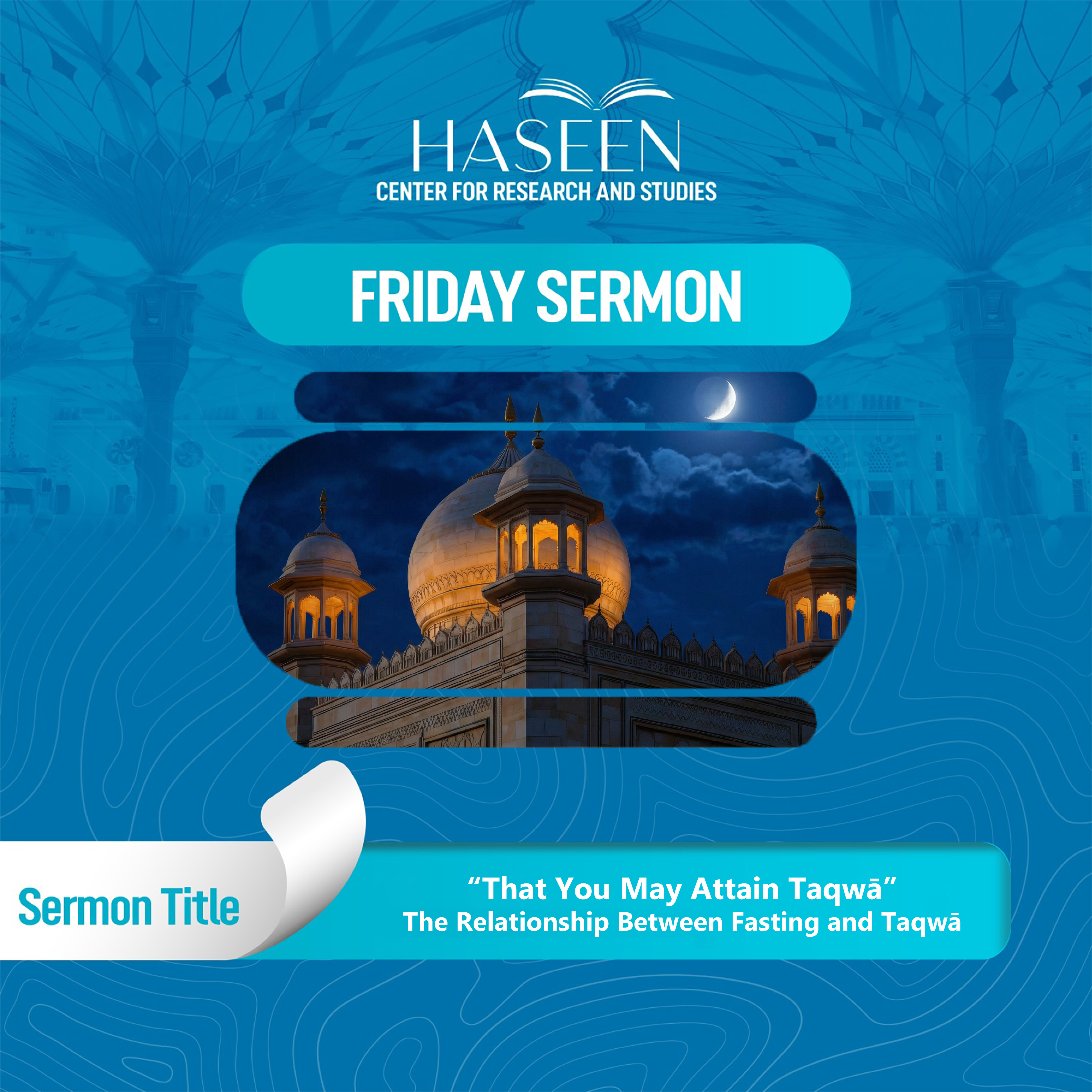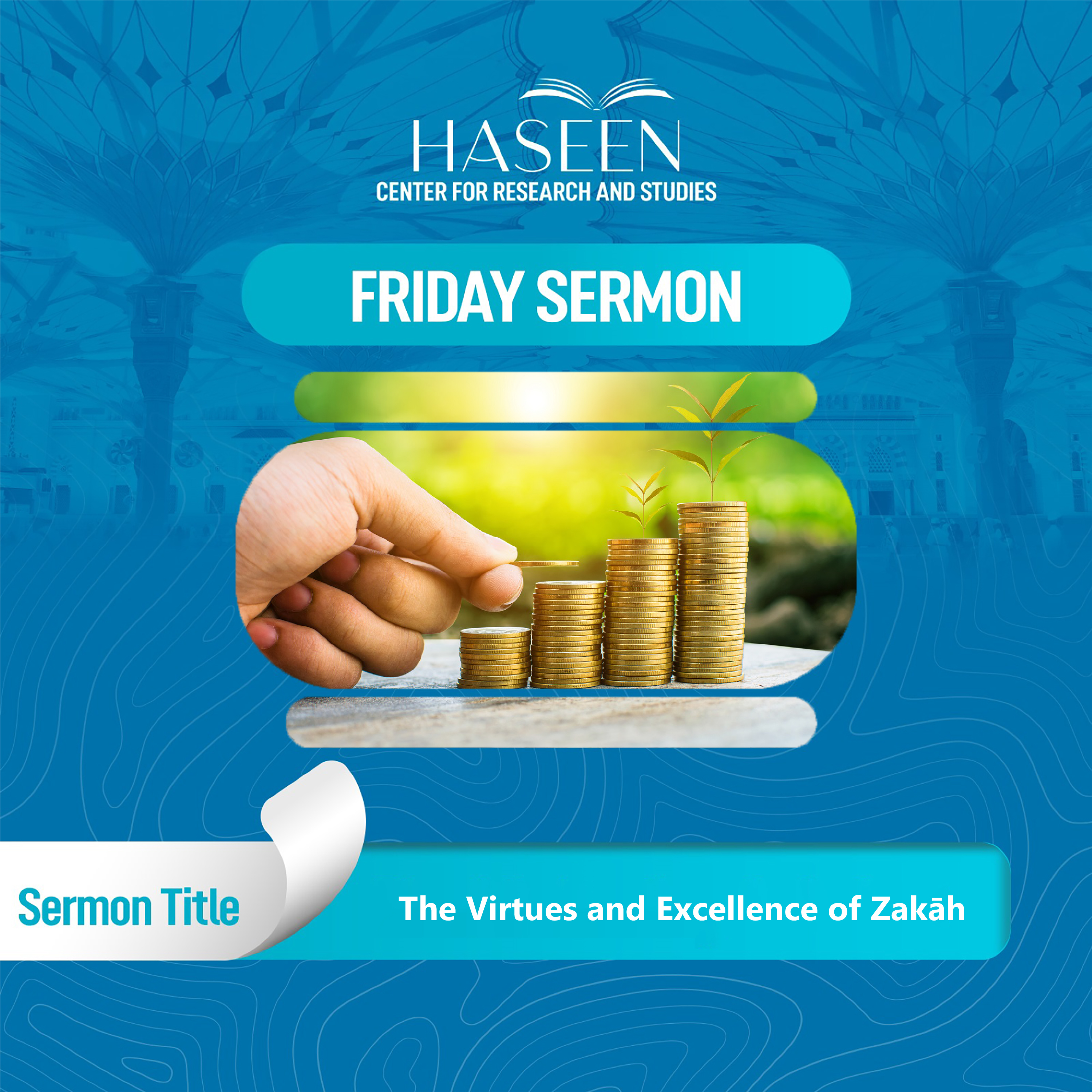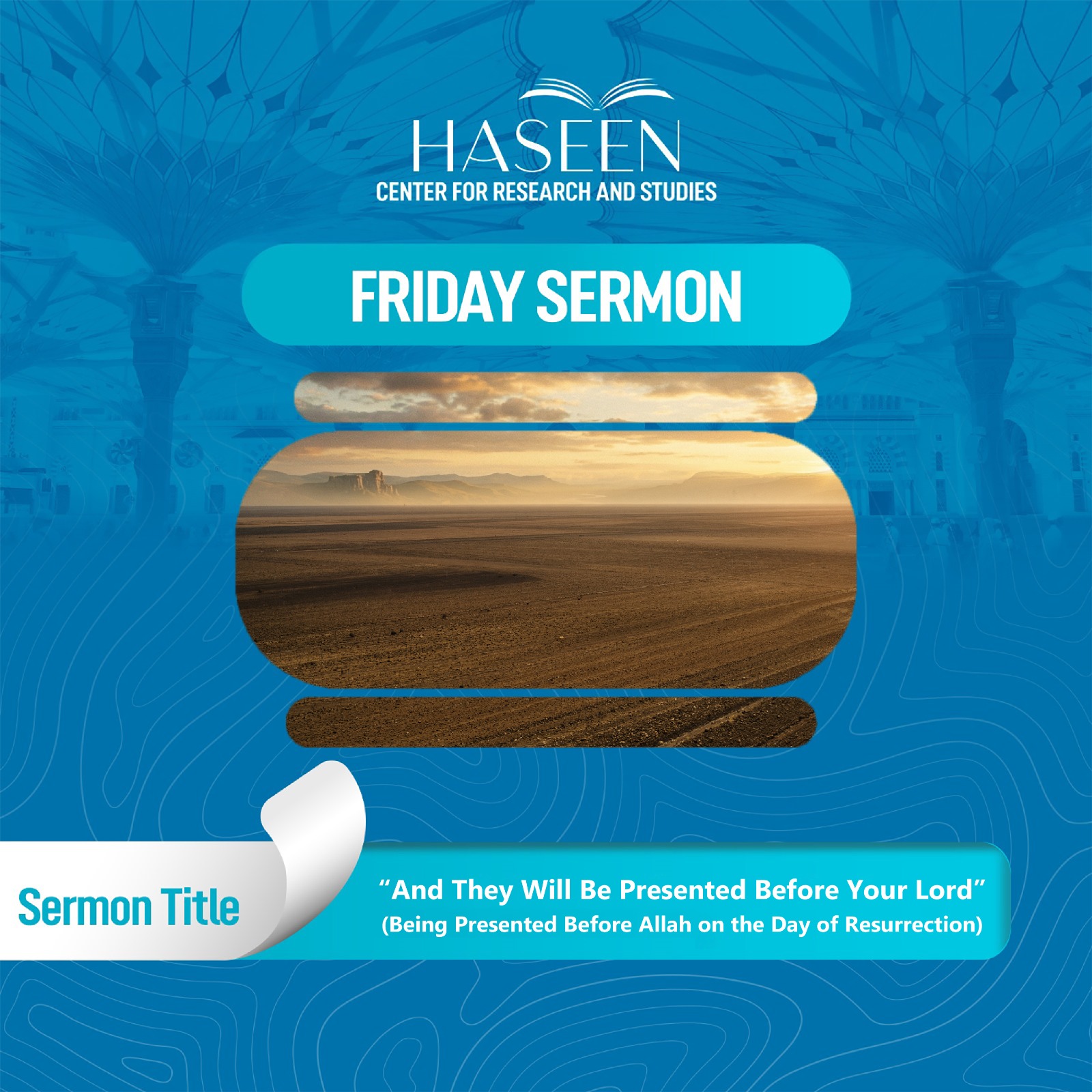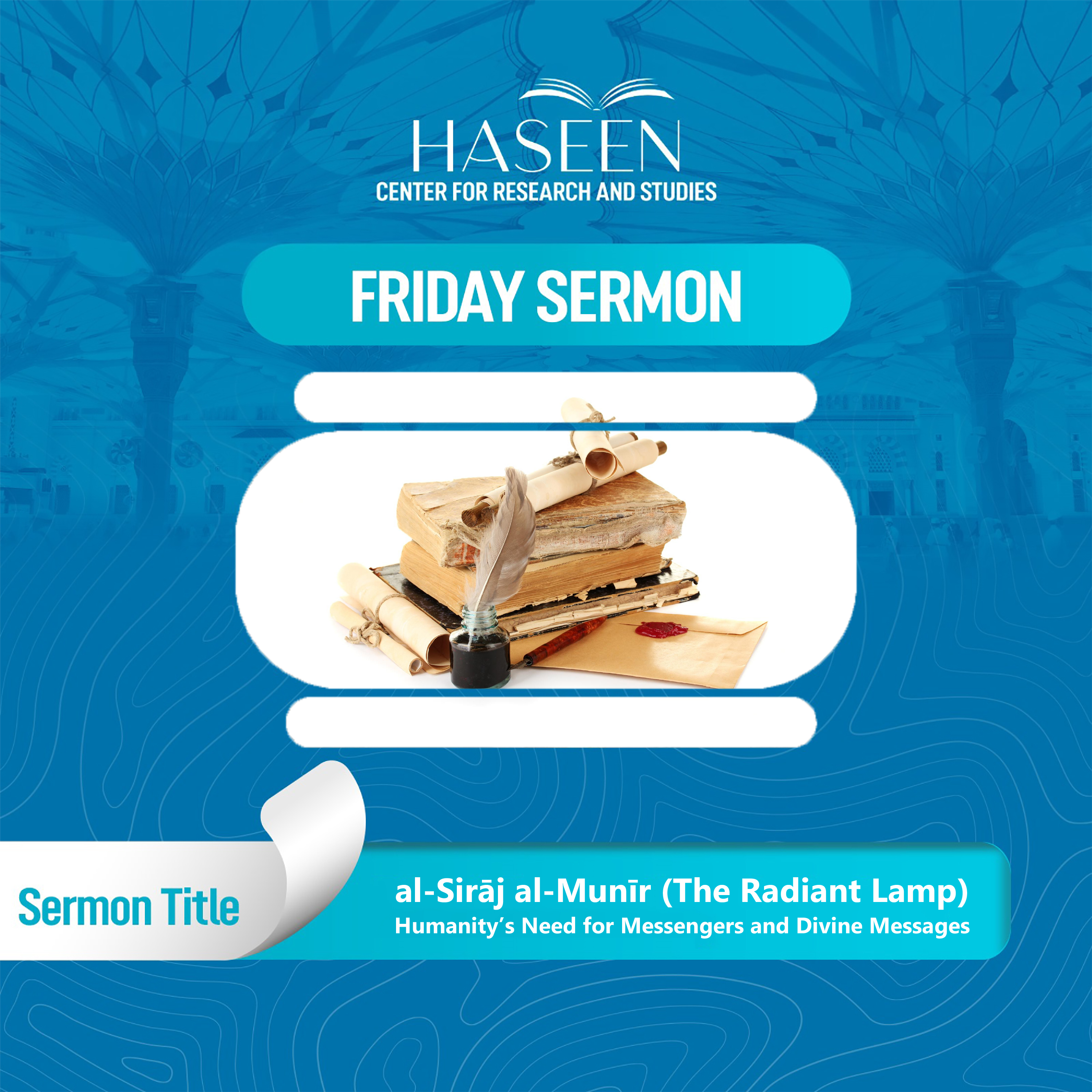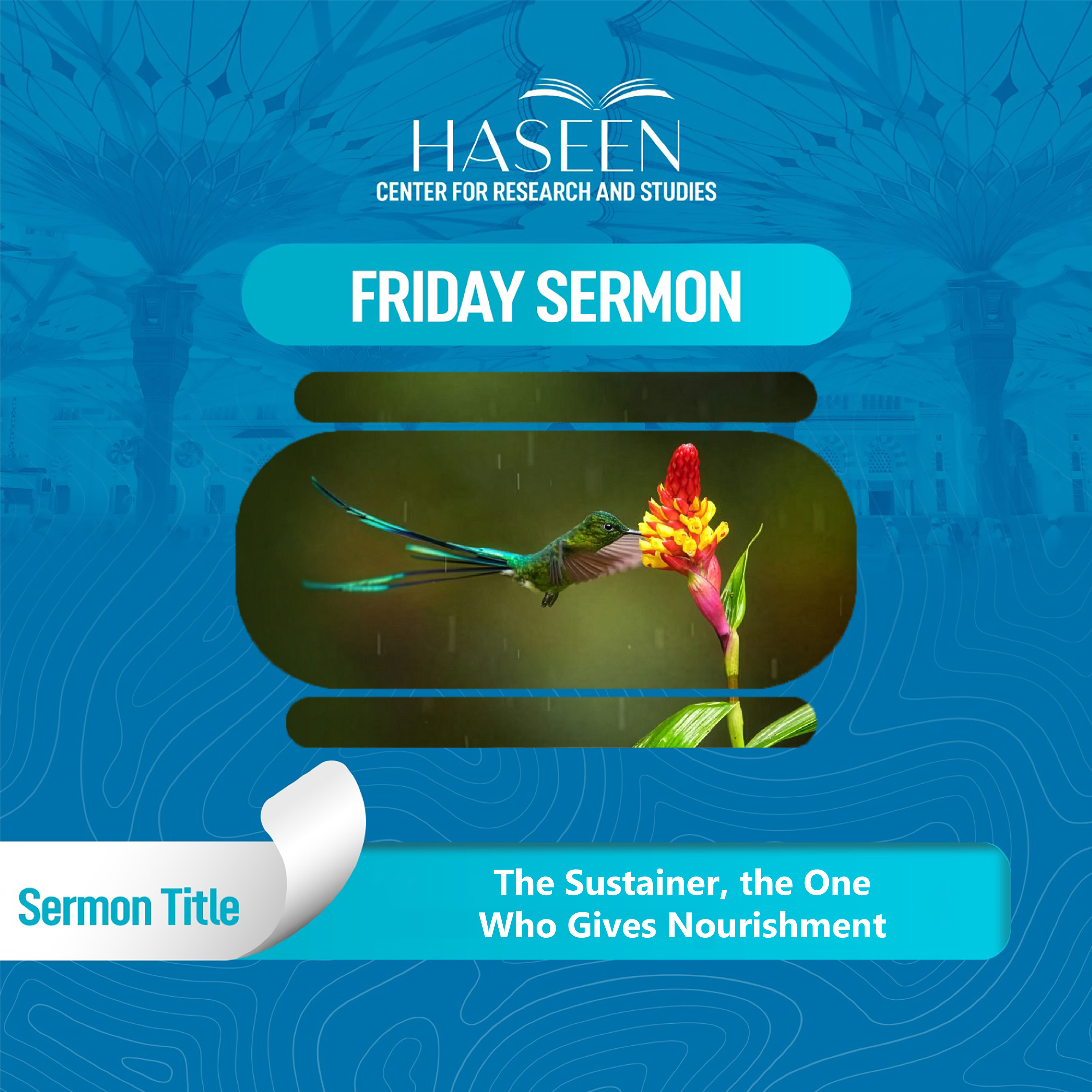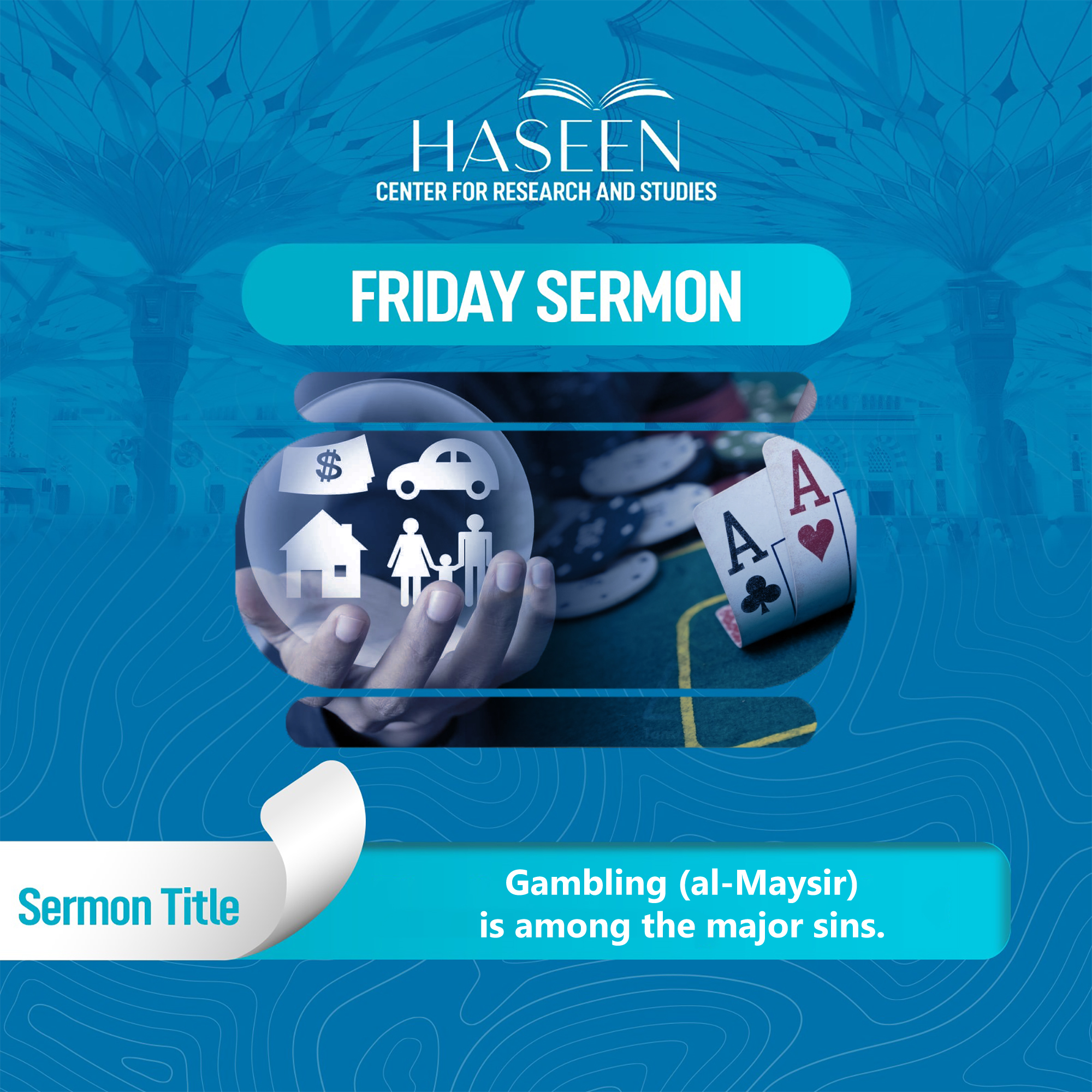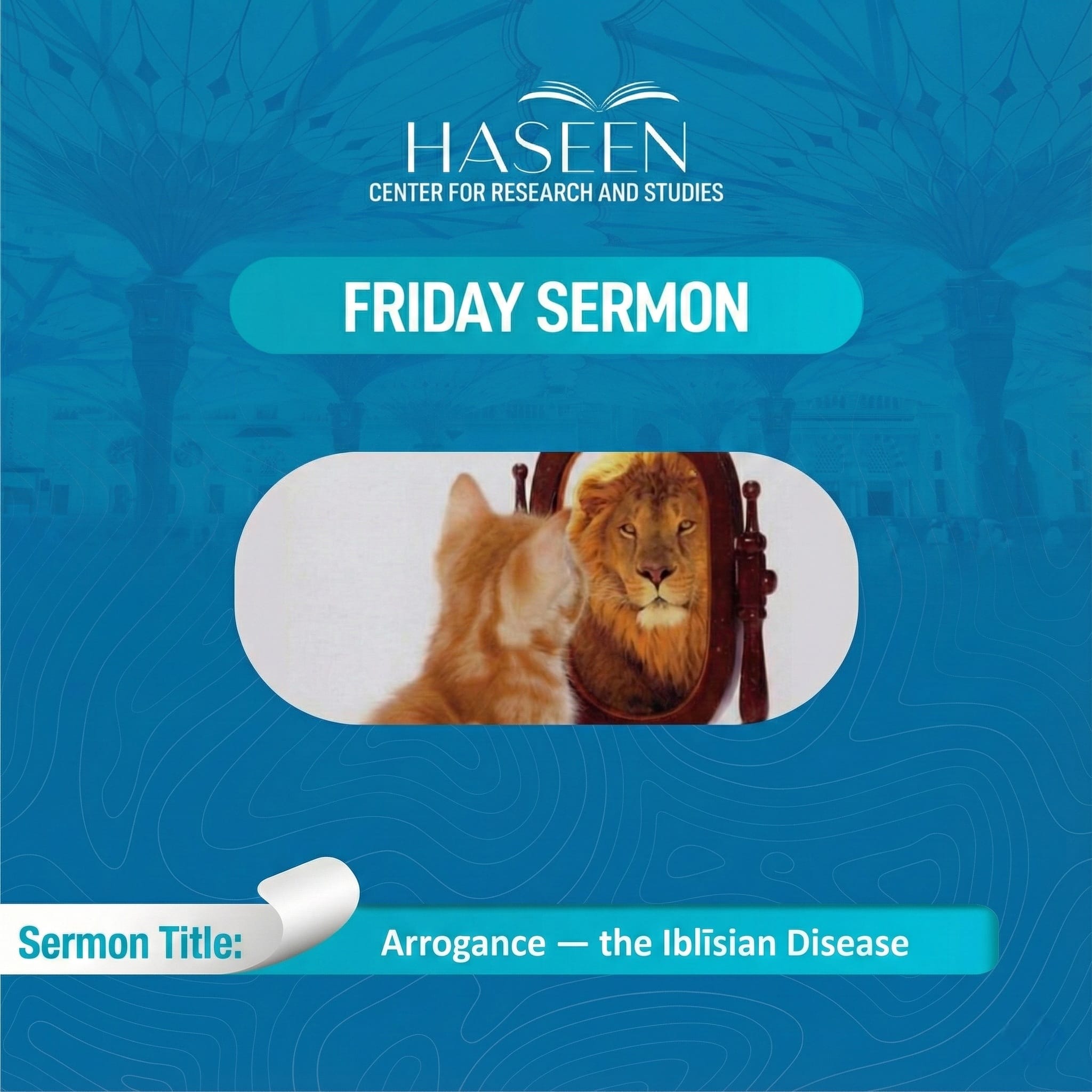Title of the Sermon: I Submit to You, O Allah, I Submit to You
Themes of the Sermon:
- The Prophets' Response to the Call.
- The Meaning of "Labbayk".
- Why Say "Labbayk" Only to Allah Without a Partner.
- The Virtue of the Ten Days.
All praise be to Allah, to Whom the monotheists respond, to Whose greatness the humble ones submit, and to Whose law the believers respond. I bear witness that there is no deity worthy of worship but Allah alone, with no partner, and I bear witness that Muhammad is the servant of Allah and His Messenger, may Allah bless him and grant him peace, abundantly.
To proceed:
Fear Allah, O servants of Allah, with true piety, and watch Him in secret and whisper,
يَا أَيُّهَا الَّذِينَ آمَنُوا اتَّقُوا اللَّهَ حَقَّ تُقَاتِهِ وَلَا تَمُوتُنَّ إِلَّا وَأَنْتُمْ مُسْلِمُونَ
"O you who believe, fear Allah as He should be feared, and do not die except as Muslims."
Brothers in Islam:
"I submit to You, O Allah, I submit to You, You have no partner, I submit to You. Indeed, all praise, grace, and sovereignty belong to You. You have no partner." This was the response of the Prophet ﷺ during the pilgrimage, as narrated by Bukhari and Muslim.
This declaration resonated with everyone who heard the call of the servant of Allah, Abraham, peace be upon him, when he proclaimed the pilgrimage among the people, among those who believed in Allah and whom Allah decreed for pilgrimage.
Abdullah ibn Abbas, may Allah be pleased with them, said, "When Abraham, peace be upon him, finished building the Kaaba, he said: 'My Lord, I have finished.' Allah said: 'Proclaim the pilgrimage among the people.' Abraham asked: 'My Lord, how will my voice reach them?' Allah said: 'Proclaim, and it is upon Me to convey.' Abraham asked: 'My Lord, what should I say?' Allah said: 'Say: O people, the pilgrimage to the ancient House has been prescribed for you.' And everyone between the heavens and the earth heard it," narrated by Ibn Abi Shaybah and Tabari, and it reached those who were in the loins of men and wombs of women. Those who believed and were decreed by Allah to perform pilgrimage until the Day of Judgment responded: 'Here I am at Your service, O Allah, here I am.'
"I submit to You, O Allah, I submit to You," thus responded the prophets. The Prophet ﷺ passed by the valley of Al-Azraq and said, "It’s almost like as if I see Moses, peace be upon him, coming down from the path, making his way to Allah with Talbiyah," then he passed by the slope of Harsha and said, "It’s almost like as if I see Jonah, son of Matthew, peace be upon him, passing through this valley, performing the Talbiyah," narrated by Muslim.
Indeed, the Talbiyah is a ritual of Hajj, and Gabriel, peace be upon him, came down instructing to raise the voice with Talbiyah. The Prophet ﷺ said, "Gabriel came to me and said, 'O Muhammad, command your companions to raise their voices with the Talbiyah, for it is among the symbols of Hajj,'" narrated by Ibn Majah.
Servants of Allah:
"I submit to You, O Allah, I submit to You" are concise words that carry precious meanings. When a servant says this sincerely from the heart, it means that he is responding to Your command, O Allah, when You called him to Hajj, and he is forever committed to obeying all Your commands. He answers and obeys, O Lord, sincerely and lovingly, never deviating from this path, for he responds to call after call, in command after command.
This is the declaration the Quran has recorded about the life of the believers: "We hear and we obey." Allah said:
إِنَّمَا كَانَ قَوْلَ الْمُؤْمِنِينَ إِذَا دُعُوا إِلَى اللَّهِ وَرَسُولِهِ لِيَحْكُمَ بَيْنَهُمْ أَنْ يَقُولُوا سَمِعْنَا وَأَطَعْنَا وَأُولَئِكَ هُمُ الْمُفْلِحُونَ * وَمَنْ يُطِعِ اللَّهَ وَرَسُولَهُ وَيَخْشَ اللَّهَ وَيَتَّقْهِ فَأُولَئِكَ هُمُ الْفَائِزُونَ
"The only statement of the believers when they are called to Allah and His Messenger to judge between them is that they say, 'We hear and we obey.' And those are the successful * And whoever obeys Allah and His Messenger and fears Allah and is conscious of Him - it is those who are the [true] winners" [An-Nur: 51-52].
"I submit to You, O Allah, I submit to You": We obey You alone, without partner; we worship You alone, without partner; no equals, no associates, no idols, and no desires.
Servant of Allah:
The servant declares this motto "I submit to You, O Allah, I submit to You" for Allah alone, without partner. Have you ever contemplated why that is?
The Talbiyah is for Allah alone, without partner, because to Him belongs sovereignty, and to Him belongs all praise, gloriously and with His praise. He alone has bestowed His visible and invisible blessings upon His servants.
The polytheists used to perform Talbiyah while circumambulating the Kaaba, saying, "At Your service, You have no partner, except a partner You possess, You own him and what he owns." Narrated by Muslim.
How foolish their minds are! How can they associate with Allah someone who owns nothing?
Allah is the true God, possessing perfection and majesty, and He alone is deserving of all praises. He alone has the merit and kindness, and thus He alone is owed absolute obedience—an obedience full of complete love, utmost humility, and submission—an obedience without selection, change, or pretense.
Abu Huraira, may Allah be pleased with him, reported that among the Prophet's ﷺ expressions of Talbiyah was: "Labbaika ilahal-haq (I submit to You, O God of Truth)." Narrated by An-Nasa'i.
The Talbiyah is solely for Allah because all good is in His hands, and evil is not attributed to Him.
The Talbiyah is a declaration of servitude to the Lord of the Worlds, which the Prophet ﷺ would say every day when initiating his prayer: "Labbaika wasa'dayka, wal-khayru kulluhu fi yadayka, wal-sharru laysa ilayka, ana bika wa ilayka (I submit to you, and all good is in Your hands, and evil is not attributed to You, I am by You and to You)." Narrated by Muslim.
"I submit to You, because all good is in Your hands, and evil is not attributed to You."
Indeed, Allah calls His servants to what is in their best interest and life, for the rectification of their worldly life and the Hereafter. Has not Allah Almighty said:
يَا أَيُّهَا الَّذِينَ آمَنُوا اسْتَجِيبُوا لِلَّهِ وَلِلرَّسُولِ إِذَا دَعَاكُمْ لِمَا يُحْيِيكُمْ
"O you who believe, respond to Allah and to the Messenger when he calls you to what gives you life" [Al-Anfal: 24].
Rejoice, those who respond to Allah with your hearts, limbs, and deeds, for good in this life and the Hereafter. Allah said:
لِلَّذِينَ اسْتَجَابُوا لِرَبِّهِمُ الْحُسْنَى
"For those who responded to their Lord is the best [reward]" [Ar-Ra'd: 18].
The Talbiyah will remain in the hearts of the believers and on their tongues even as they are in the Gardens of Eternity, and then Allah's pleasure will descend upon them, and He will not be displeased with them ever after.
The Prophet ﷺ said: "Allah will say to the inhabitants of Paradise: 'O people of Paradise.' They will respond, 'Here we are, our Lord, and we are happy; all good is in Your hands.' He will ask, 'Are you satisfied?' They will say, 'Why should we not be satisfied, O Lord, when You have given us what You have not given to any of Your creation?' He will say, 'Shall I not give you something better than that?' They will say, 'O Lord, and what thing is better than that?' He will say, 'I bestow My favor upon you, and I will never be displeased with you after that.'" Narrated by Bukhari and Muslim.
Indeed, the truly responsive servant is the one who recognizes his Lord and is certain of His promise, thus turning his face to Allah, approaching His book, contemplating it, and acting upon it. He is the servant who has taken the Prophet Muhammad ﷺ as his role model in all matters, complying when commanded, ceasing when forbidden, and believing when informed. He adopts his Sunnah as a light to illuminate his path and a methodology to follow. He is the servant satisfied with Islam as a religion, seeking no alternative or deviation, priding himself over all other religions and rising above the refuse of thoughts. He is the servant not deluded by the world's temptations, nor seduced by its desires and whims, because obedience to Allah's command has conquered his heart, thus belittling all that is insignificant...
May Allah bless us and you with the Noble Quran and benefit us and you with the verses and the wise remembrance, and I seek Allah's forgiveness for us and you; seek His forgiveness, for He is the All-Forgiving, the Most Merciful.
Second sermon
All praise is due to Allah, and may Allah exalt and send peace to the Messenger of Allah, his family, his companions, and those who follow him.
To proceed:
O servants of Allah:
The best days of the world have come!
The Messenger of Allah ﷺ said: "There are no days in which righteous deeds are more beloved to Allah than these ten days." They asked: "O Messenger of Allah, not even jihad in the way of Allah?" The Messenger of Allah ﷺ said: "Not even jihad in the way of Allah, except for a man who goes out with his life and wealth and returns with nothing." Narrated by al-Tirmidhi.
Every righteous deed during these days is better, more beloved, and more rewarding and greater in reward with Allah than any righteous deed during other times, except for the best form of jihad, which is the one who goes out striving in the way of Allah with his life and wealth, spends his wealth in the way of Allah, and Allah grants him martyrdom.
One of the greatest deeds during these ten days—after observing the obligatory duties, refraining from prohibitions, repenting to Allah from sins, and restoring injustices—is what our Prophet ﷺ recommended, which is to frequently say: "There is no god but Allah, Allah is the Greatest, and all praise is due to Allah."
The Prophet ﷺ said: "There are no days greater with Allah and in which good deeds are more beloved to Him than these ten days, so increase in them the saying of 'La ilaha illallah,' 'Allahu Akbar,' and 'Alhamdulillah.'" Narrated by Ahmad.
It is also recommended to fast during these days, as the Prophet ﷺ exerted himself in obedience to his Lord during these ten days and did not neglect fasting them.
Some of the wives of the Prophet ﷺ said: "The Messenger of Allah ﷺ used to fast the first nine days of Dhu al-Hijjah." Narrated by Abu Dawood.
The greatest fast within these days is the fast of the Day of Arafah, as the Prophet ﷺ said: "Fasting on the Day of Arafah, I hope from Allah, expiates for the sins of the previous year and the coming year." Narrated by Muslim.
So, increase, O servants of Allah, in righteous deeds, for these are mercies from the Lord of the worlds, for those who seek closeness and high ranks in the eternal gardens.
O Allah, help us to remember You, thank You, and worship You well. O Allah, grant us safety in our lands, reform our leaders and those in charge of our affairs, and place our governance in those who fear You, observe piety towards You, and follow Your pleasure.
O servants of Allah: Remember Allah much, and glorify Him morning and evening, and our last call is that all praise is due to Allah, Lord of the Worlds.



